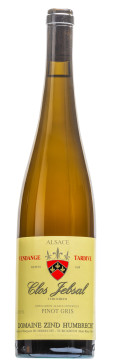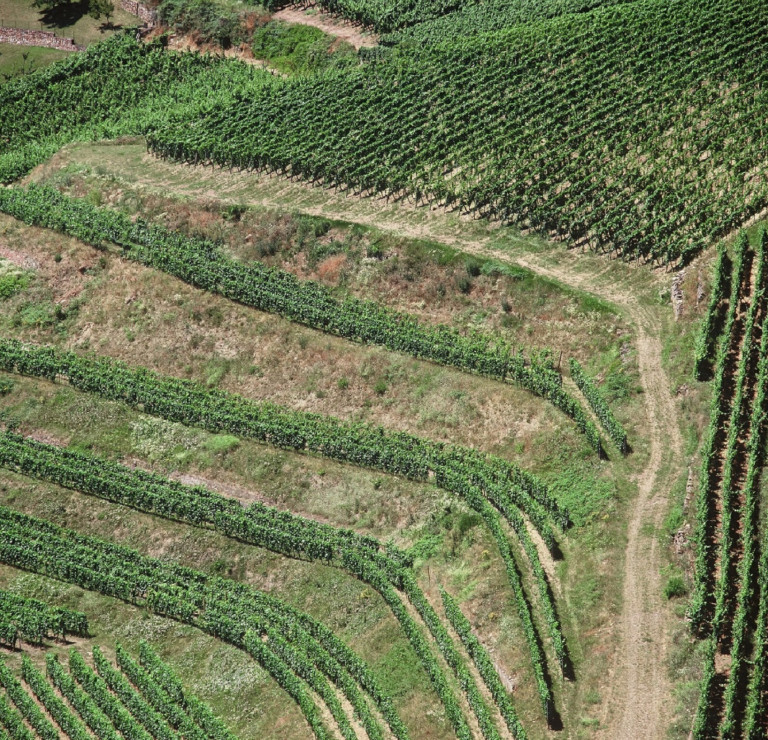
Technical presentation
| Bottling : | August 2019 |
|---|---|
| Acquired alcohol : | 13.5° |
| Residual sugar : | 79.0 g/l |
| Total acidity : | 3.1 g/l H2SO4 / (4.7g/l Tartrique) |
| pH : | 3.70 |
| Optimum tasting : | 2023-2043+ |
| Average age of vines : | Vineyard planted in 1983 |
| Grape variety : | Pinot Gris |
| Terroir : | Clos Jebsal |
| Sweetness index : | VT |
| Soil : | Grey marls and gypsum (Keuper) |
Description of the wine Pinot Gris Clos Jebsal 2018 - Vendange Tardive
Alsace geology is complex and so diversified! Geological faults run north to south and east to west, creating a ‘chessboard’ effect. In some areas, a specific soil can be uniform on a large surface, on other, it can be tiny. The Jebsal vineyard only covers 1.3ha and is specifically on Keuper (blue clay rich in gypsum from the Trias period). It is actually the only vineyard in Turckheim that carry a name directly linked to its geology: Jebsal means gypsum. This vineyard enjoys probably one of the earliest ripening climate in Alsace (at least for the domaine) enhanced by a steep south facing terraced exposure. The rich clay allows the vines to grow in this dry area and bring the humidity necessary for the development of botrytis, almost every year. Almost! because in 2018 the air was so dry that we so much less botrytis development than usual. However, Jebsal wants to produce sweet wine. That’s its destiny, so when there is no botrytis, there is passerillage (the grapes dry out with the sun) which also leads to richer sweeter style! The fermentation isn’t slow, but the wild yeasts stop their activity earlier. The combined action of residual sweetness, increasing alcohol level and acidity becomes fatal for them. The balance of the 2018 is really classic and probably corresponds to what we would like to achieve on a regular basis.

Tasting notes
04/2020 : Clear light yellow colour, showing that the botrytis wasn’t important in 2018. The nose exhibits lovely rich fruits, quite intense (pears, peaches, apricots). There is an obvious sense of richness already on nose but also harmony. The palate is elegant and the balance works perfectly between all the key elements of the wine. Obviously, such a wine will require further ageing to integrate them perfectly but also to develop more complex bottle aged aromatics like honey, bee wax… The finish is delicate and supple, the clay present in the soil brings a soft touch on the palate. A wine for the future…

The Clos Jebsal of Turckheim
The wines from Clos Jebsal are discreet in their youth, often marked with flinty or smoky aromas. The expression of fruit linked to the concentration by botrytis is coaxed out with some time in bottle